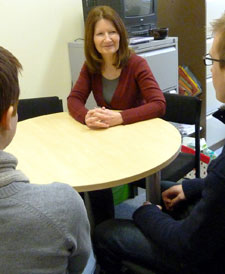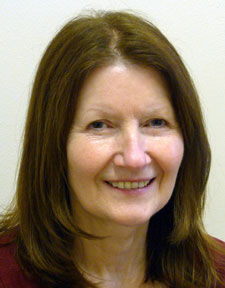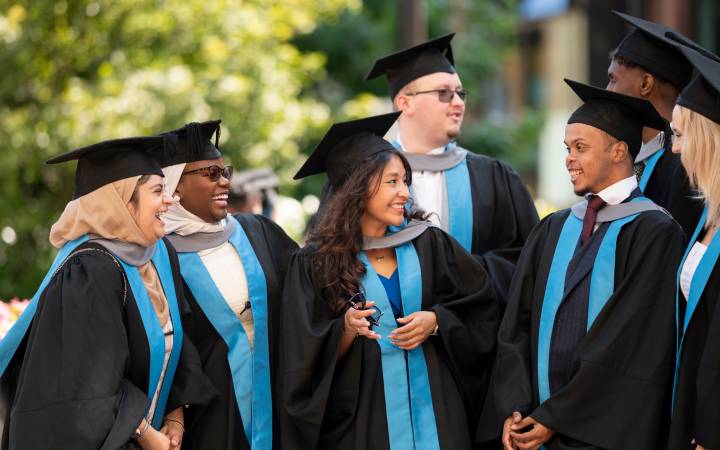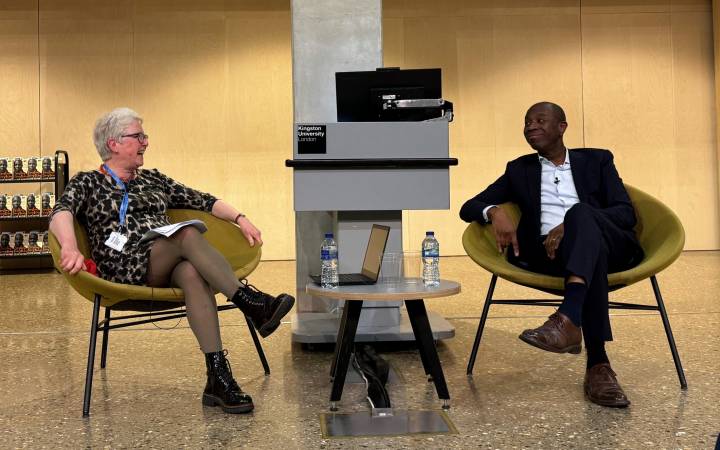Don't get mad, get mediation
Posted Wednesday 1 February 2012
 Do you know someone who is arguing with their neighbour about the position of a fence, parking spaces or noisy pets? Perhaps you've heard of a family dispute about money lent and not returned? Whatever the cause of the argument, a newly-expanded free mediation service from Kingston University in conjunction with the Metropolitan Police in Kingston could help provide the answers. The initiative - which is designed to stop neighbourhood or family disputes developing into years of unpleasantness, or even spilling into violence - is a pilot trial running until the end of March.
Do you know someone who is arguing with their neighbour about the position of a fence, parking spaces or noisy pets? Perhaps you've heard of a family dispute about money lent and not returned? Whatever the cause of the argument, a newly-expanded free mediation service from Kingston University in conjunction with the Metropolitan Police in Kingston could help provide the answers. The initiative - which is designed to stop neighbourhood or family disputes developing into years of unpleasantness, or even spilling into violence - is a pilot trial running until the end of March.
"The police in Kingston receive, on average, 63 complaints* relating to neighbour disputes every single month," Trevor Quy, the police liaison co-ordinator said. "And these are just the ones that reach us. We know that other disputes are simply tolerated but can cause problems for a very long time. A colleague of mine recently dealt with one dispute that had lasted for nine years. Sometimes the situation is intolerable, creating great personal stress, and I am pleased that Kingston University and the police can now offer a potential way out of a difficult situation."
The service, initially designed to assist in student disputes and run by two senior University-trained and accredited mediators, can be accessed by emailing KUmediation@met.police.co.uk or by calling 020 8247 4906.
 "Mediation may be a solution for people who find themselves in a dispute with neighbours, families or some other party, as a means of restoring good relationships," Pamela Sellman, Lecturer in Law at Kingston University, and a principal instigator of the initiative said. "We are experienced mediators and because we fully support the University's aim to be involved in - and provide more support for - the local community, we're happy to donate our expertise and time. I'd like to urge anyone with an issue to consider the service."
"Mediation may be a solution for people who find themselves in a dispute with neighbours, families or some other party, as a means of restoring good relationships," Pamela Sellman, Lecturer in Law at Kingston University, and a principal instigator of the initiative said. "We are experienced mediators and because we fully support the University's aim to be involved in - and provide more support for - the local community, we're happy to donate our expertise and time. I'd like to urge anyone with an issue to consider the service."
The mediator would first see each party separately in a private meeting and then, should the parties agree to proceed, a joint meeting would then be arranged, Ms Sellman said. "We aim to ensure a safe, non-threatening environment where each person can have an open and honest dialogue with the other people present," she added.
One of the big advantages of the service - which was on a first come, first served basis - was that mediation could begin within days of the initial request rather than people having to apply to get on protracted waiting lists, Trevor Quy explained. "The mediation sessions are always in an independent location and confidentiality for all parties is key," he said. "Don't let family or neighbourhood disputes fester. There's now speedy and rapid help available. It just needs the will to seek help - and best of all, it is free."
- * Source METSTATS October 2010 - September 2011 inclusive
 The Mediation Process:
The Mediation Process:
Mediation is a completely voluntary process and it is important to note that by agreeing to take part in mediation there is no commitment other than to turn up to the meeting. Where both parties agree:
- The mediator first sees each party separately in a private meeting;
- The mediator listens to concerns and hears about the impact the dispute is having on them (this meeting can last up to an hour);
- After each party has had a private individual meeting with the mediator, a joint meeting of up to two hours then takes place between the parties;
- At the joint meeting the role of the mediator is to ensure that the parties have a safe, non- threatening environment where they can have an open and honest dialogue with each other;
- The mediator does not take sides or suggest solutions; the role of the mediator is to help the parties explore fresh possibilities for resolving their dispute and to work out a solution with which they are happy.
Local people can access the mediation service by emailing KUmediation@met.police.uk or by calling 020 8247 4906.
Contact us
General enquiries:
Journalists only:
- Communications team
Tel: +44 (0)20 8417 3034
Email us



